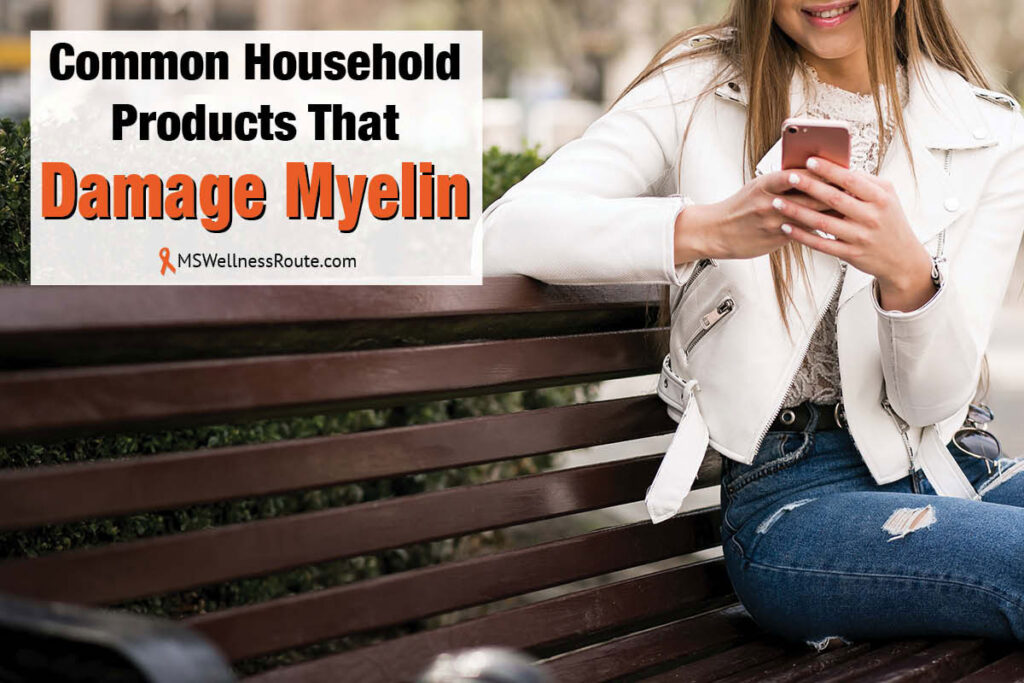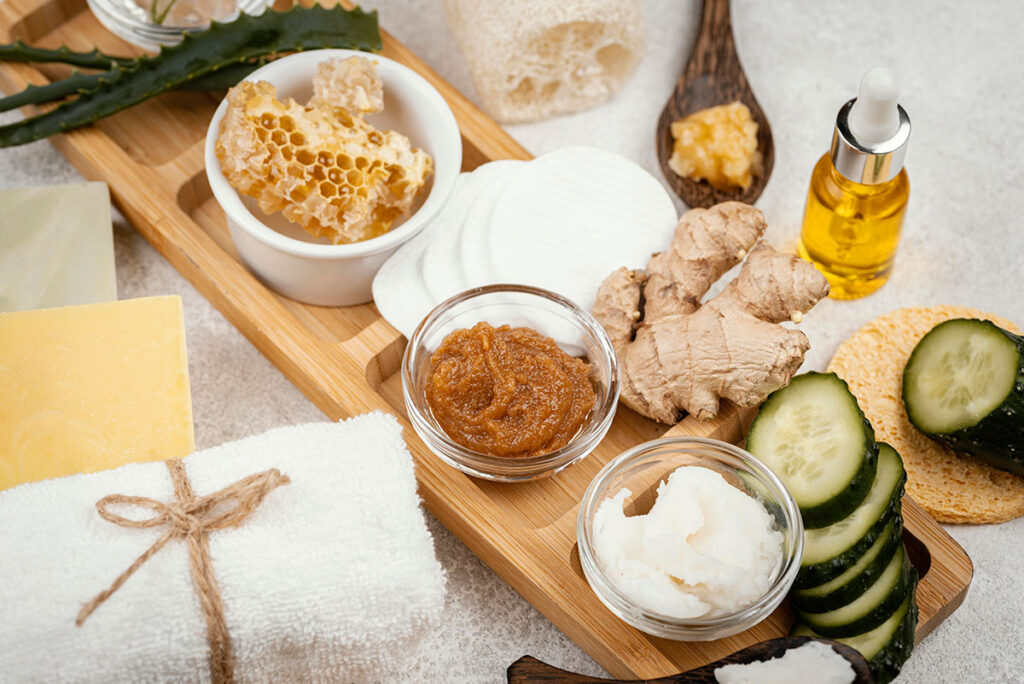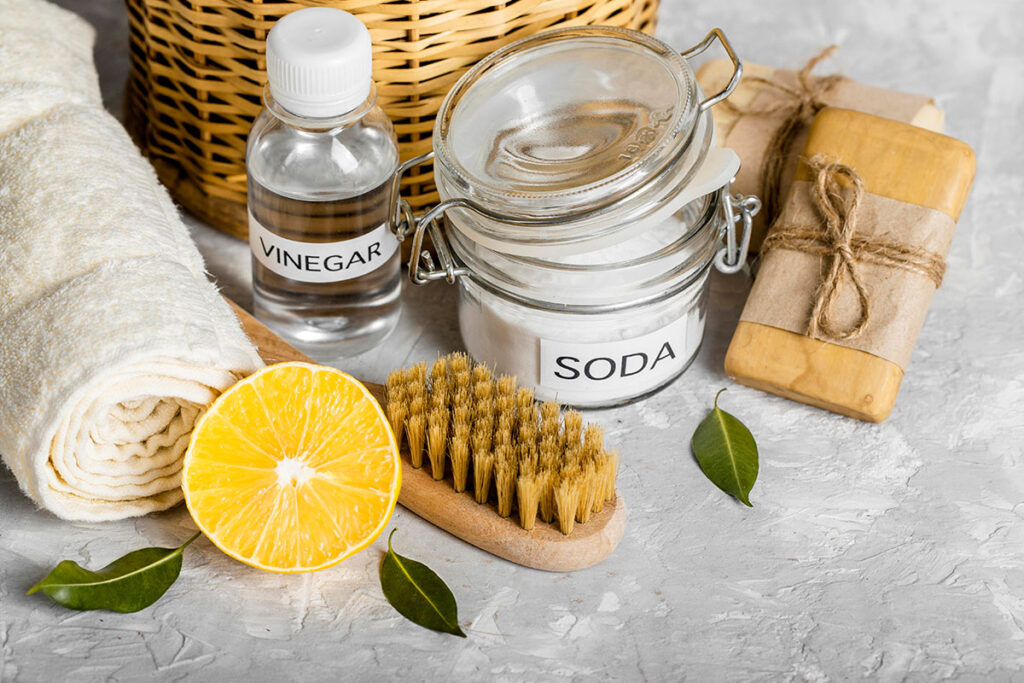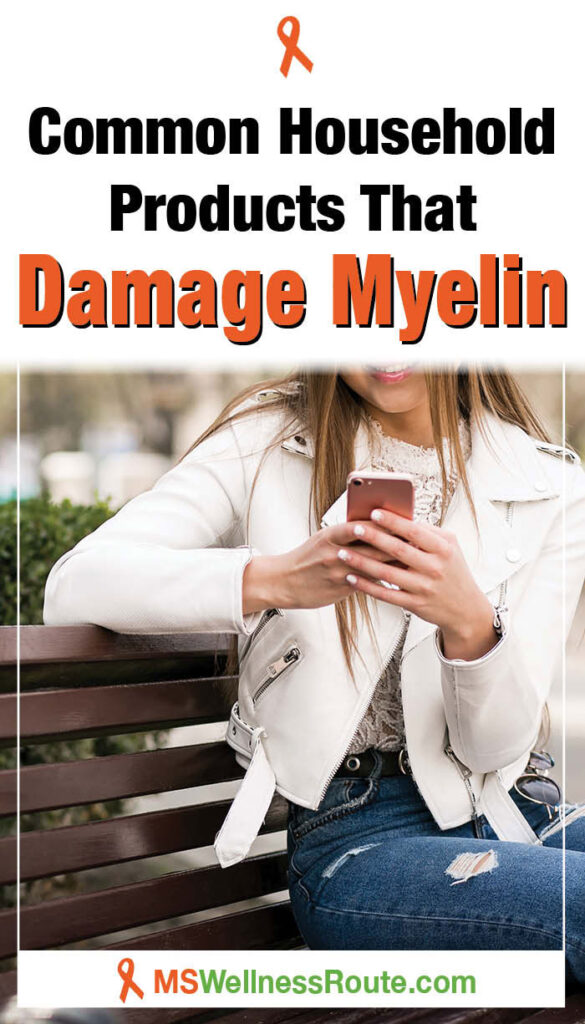
Things like electronics and body care products can damage the myelin around nerves. A recent study discovered certain household chemicals harm brain cells called oligodendrocytes. Oligodendrocytes are cells in the central nervous system that produce myelin. Researchers analyzed over 1,800 chemicals and found certain chemicals that damaged oligodendrocytes. These harmful chemicals are in your home right now.
- Flame retardants – found in many electronics and furniture
- Quaternary ammonium compounds – found in disinfectants and many personal care products
Flame retardants stopped oligodendrocytes from developing fully. While quaternary ammonium compounds cause oligodendrocytes to die. – That body wash, moisturizer, or dryer sheet you use could damage the brain cells that build myelin!
This is why it’s very important to use products to protect yourself from these chemicals!
They suggest that chemicals found in a wide range of items, from furniture to hair products, may be linked to neurological conditions.”
– Science Daily
Protect Yourself From Harmful Body Care Products

It’s convenient buying common body care products but how do you know if it’s safe? Here are some simple ways to protect yourself from chemicals that damage and kill oligodendrocytes that produce myelin:
- Choose trusted brands. Stick to brands that prioritize safety and transparency in their ingredients.
- Go natural. Make your own body care products. Use natural ingredients like coconut oil or shea butter.
- Read labels carefully. Look for products with fewer chemicals and more natural ingredients. Avoid products with formaldehyde, parabens, phthalates, sulfates, and synthetic fragrances.
- Stay informed. Keep up with news and information and make informed choices.
- Use less. Limit your use of products with strong chemicals, and try to find alternatives.
Protect Yourself from Harmful Chemicals in Disinfectants

Disinfectants are commonly used to kill germs. Some common disinfectants are bleach and alcohol solutions. To safeguard yourself from harmful chemicals in disinfectants, follow these simple steps:
- Choose safer options. Use natural disinfectants like vinegar or hydrogen peroxide. They are gentler for the environment and your health.
- Read labels. Choose disinfectants with fewer harsh chemicals and choose safer alternatives when possible.
- Limit exposure. Use disinfectants only when necessary and use safer cleaning methods for routine maintenance.
- Dilution. Follow instructions for diluting disinfectants properly to reduce their potency and potential harm.
- Protective gear. Wear gloves and a mask when using strong disinfectants. This will help minimize contact and inhalation.
- Ventilation. Use disinfectants in well-ventilated areas to reduce exposure to fumes.
Environmental Working Group

Manufacturers use words on their labels to catch your attention. Don’t get tricked into words like “clean” or “green.” That’s why it’s hard to know which products are truly safe for your health.
The Environmental Working Group (EWG) is an organization that helps the consumer choose the best products. It’s difficult to know what’s in ingredients so they do the work for you. They rate many common household products including body care products. Some products receive the EWG Verified™ seal which meets the strictest standards.
I’ve been using EWGs apps for many years and find it helpful. It doesn’t always have what I’m looking for but it’s still useful. I’ve bought many body care and household products thanks to these apps.
They have a couple of apps that can help you find healthier products while shopping:
- Healthy Living App. This app allows you to scan the barcode of a product and instantly see its EWG rating. It shows the safety of the ingredients based on EWG’s research.
- Skin Deep. This app focuses on personal care and cosmetic products. Use it to find products, see safety ratings, and learn about harmful ingredients.
Both apps provide valuable information to help you make better decisions. Check out my two pages that include many EWG Verified™ seal of approval products, you can find them here:
Protect Yourself from Flame Retardants

Image by rawpixel.com on Freepik
Protecting yourself from flame retardants is a little tricker. When you’re inside your home and car you are unknowingly exposed to many flame retardants. It’s impossible in todays modern world to avoid flame retardants. You’re wearing it, sitting on it, and carrying it everywhere you go.
Products that have flame retardants include:
- Automotive parts
- Building materials like insulation and foam boards
- Carpets and rugs
- Certain clothing and household fabric
- Children’s products like car seats and strollers
- Circuit boards such as computers, smartphones, tablets, and TVs
- Curtains and drapes
- Foam insulation
- Mattresses and bedding
- Upholstered furniture
Since flame retardants are harmful to the myelin, it’s important to protect yourself. Some U.S. states have already restricted or banned specific flame retardants. California has been a leader in flame retardant regulations and has strict standards. Other states have followed suit but for the majority of states, there are no regulations.
Here are some helpful tips to stop the damage of myelin formation:
- Choose furniture wisely. Pick items without added flame retardants whenever possible. Look for furniture made from natural materials like solid wood, cotton, wool, or bamboo. Buy antique or older furniture before the use of flame retardants.
- Stay informed. Keep an eye out for flame-retardant-free products. Look for labels such as “Certified Organic” or “Greenguard Certified.”
- Use covers. Cover furniture and mattresses to reduce direct contact with flame retardants.
- Ventilate your space. Keep your home well-ventilated to reduce exposure to these chemicals.
- Wash hands. Wash your hands frequently. Especially after handling furniture or items that may contain flame retardants.
- Wash new clothes and textiles. Washing new clothes, towels, and bedding. It won’t fully remove fire retardants but it will help reduce your exposure to them.
Common Household Products

Protect yourself from things that could damage the myelin covering your nerves. Read labels closely and stay informed about health risks. Choose natural ingredients as much as possible. Making informed choices can reduce chemical exposure and help your oligodendrocytes. Even small changes make a difference.
Quick Links To Information In This Post:

The Ultimate Guide to Surviving & Thriving with MS
Unlock the key to a vibrant life with multiple sclerosis by subscribing to my newsletter and gaining exclusive access to ‘The Ultimate Guide to Surviving & Thriving with MS.’ It’s packed with valuable information on natural management strategies and clean health lifestyle practices that you can start today.
Want to remember this health tip? Pin it to your Pinterest board!

Image by senivpetro on Freepik
Resources:
https://www.sciencedaily.com/releases/2024/03/240325135708.htm
Common Household Products That Damage Myelin





